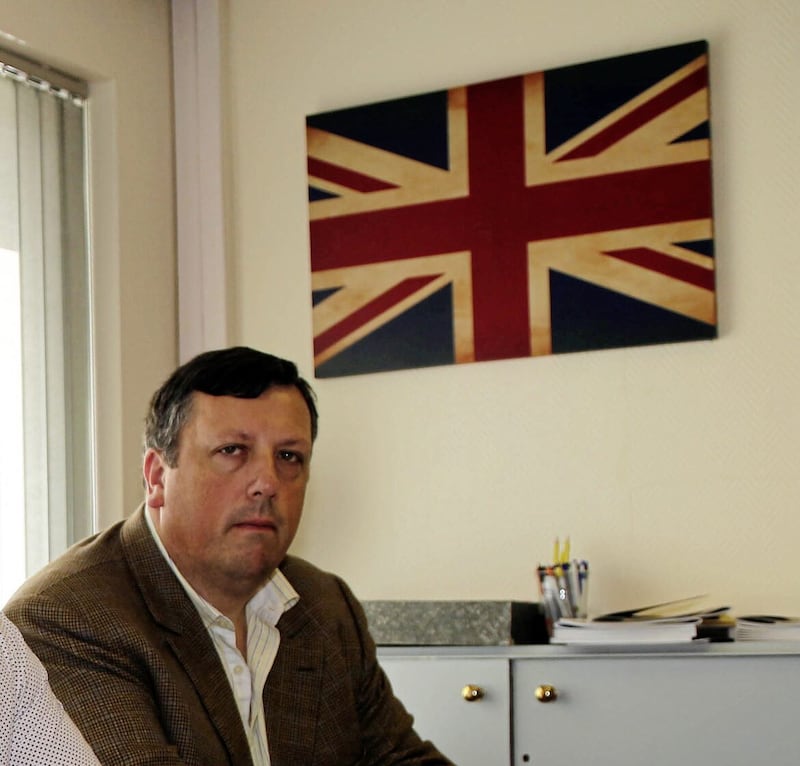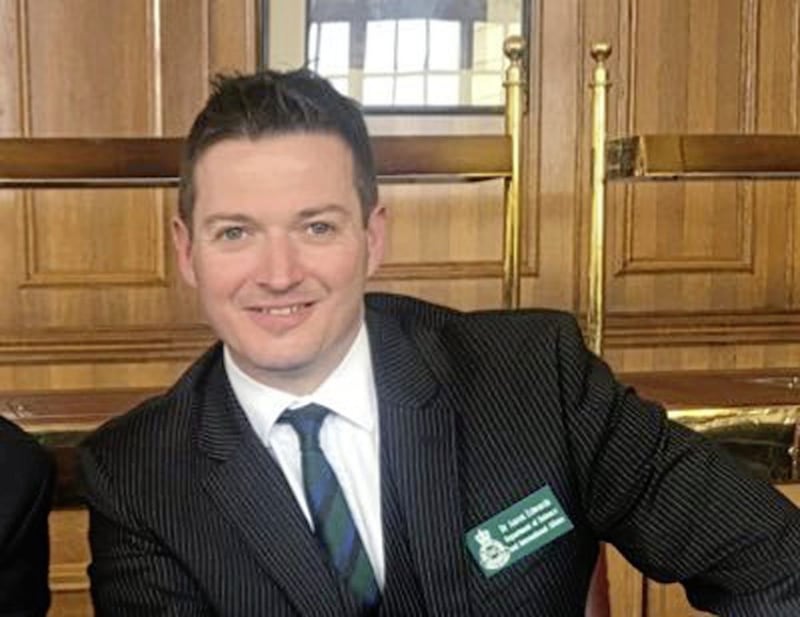Loyalist paramilitary groups will be feeling “queasy” at the prospect of Sinn Féin taking the first minister’s mantle at Stormont, a leading academic has warned.
The assessment comes as the Loyalist Communities Council (LCC) umbrella group continues to consider its response to the deal between the DUP and British government, which will see the largest unionist party return to the executive.
Set up in 2015 the LCC includes representatives of the UVF, UDA and Red Hand Commando but excludes some loyalist paramilitary factions, including the breakaway South East Antrim UDA unit.
It has been reported that the LCC, which withdrew support from the Good Friday Agreement in 2021 over the Northern Ireland Protocol, met with the DUP on Tuesday to discuss its contentious deal.
Some loyalists have reacted angrily to the DUP’s decision to return to Stormont while the Irish Sea Border remains.
There has also been speculation around a return of anti-protocol street protests, similar to those held in 2021 and 2022, which included outbreaks of violence.

LCC chairman David Campbell has said the group will be making no comment until it has considered details of the deal.
However, Mr Campbell has also been reported in Tuesday’s News Letter as saying the prospect of a Sinn Féin First Minister is “anti-democratic”.
While Sinn Féin is the largest party, there are more designated unionist MLAs.

Dr Aaron Edwards, author of ‘UVF: Behind the Mask’, believes the emergence of the first nationalist to hold the top title at Stormont could be a bitter pill for some to loyalists to swallow and referred to Mr Campbell’s recent remarks.
“He is reasserting the hardline viewpoint on that, that a lot of loyalist paramilitaries would probably share,” he said.
“That they are queasy or uncomfortable with the prospect of a Sinn Féin First Minister, so I think we have to factor that in even though the DUP are saying that wasn’t a consideration in restoring Stormont - that the focus was on the barriers between Great Britain and Northern Ireland.
“But I think for loyalist paramilitaries, we are talking about people who were involved in sectarian killings once upon a time, whose view haven’t always been progressive.
“There was one time when they were led in a more progressive direction by the PUP and UDP.”
Dr Edwards, a lecturer at the Royal Military Academy Sandhurst, believes the decision by the UVF’s Shankill Road-based leadership to remove key figure in its east Belfast unit last year helps clear the way for a united response.
“I think that given what’s happened over the past few months we can be fairly confident that what comes from the UVF element of the LCC will be more or less a united front because of the internal politicking that’s gone on and the standing down of the so-called East Belfast Battalion leadership,” he said.
“If they go for it, they are backing it as an organisation and similar with the UDA, however, South East Antrim have obviously cut their own path for many years.
“So, I think we will get a fairly unified response but again that may not stand up to the sort of dissention we have seen out on the streets.”
Dr Edwards said that if some loyalists opt for protest action the mainstream leadership will adopt a tactical approach.
“If they move towards protest action history tells us the mainstream leadership usually try to mop up that disaffection and move with them,” he said.
“Even if they back it, it’s too early to tell how that would go on the ground.”









